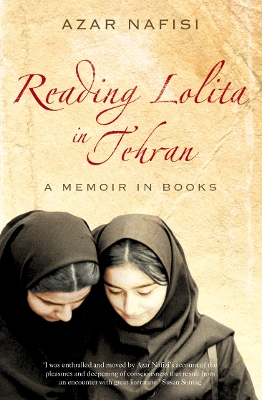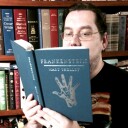
gmcgregor
Nafisi uses four major works of the literary canon as lenses through which to tell her story: the titular Lolita, The Great Gatsby, Daisy Miller, and Pride and Prejudice. She touches relatively briefly on her childhood in Iran, her emigration to the United States to study, and her brief, unhappy first marriage followed by her second, much better one. The book spends much more time discussing life when she returns to Iran with her husband and begins teaching as the Islamic Revolution unfolds, and the restrictions on female and literary life under the ayatollahs.
Nafisi has a unique perspective on the Islamic Revolution as both insider (she was born and spent a large portion of her childhood in Iran, and married a fellow Persian and moved back) and outsider (she spent her early adulthood in the United States and got a Western education before she came back). It's fascinating and horrifying to read about how women's roles and rights were pushed back and back as time went on...Nafisi is never run out of the workplace per se, but she is threatened with an anonymous note and was subject to constant harassment over not wearing her headscarf properly, and eventually decides that continuing to teach is more trouble than it's worth. As she watches her students struggle to make their own lives and raises her daughter, it becomes obvious to her that she can't stay in Iran even though she doesn't want to leave, either.
It's useful to come in with a working comprehension of the novels Nafisi focuses on, since she discusses them and how their themes relate to situations she deals with at length. I'd read three of the four coming in (no Daisy Miller for me), and while it's certainly possible to understand the book without the literary references, it's definitely richer and deeper if you can follow along. For the most part I enjoyed the way she used the focus novels, though I did get a little irritated in the section on Lolita when she claimed repeatedly that she wasn't comparing the ayatollahs to Humbert and Iranian women to Lolita and then went on to do just that over and over. I think it's an interesting and valid way to look at Lolita, but if you're going to go there don't pretend that's not what you're trying to do. On the whole, though, it's a very interesting memoir, especially for a bookish audience!


